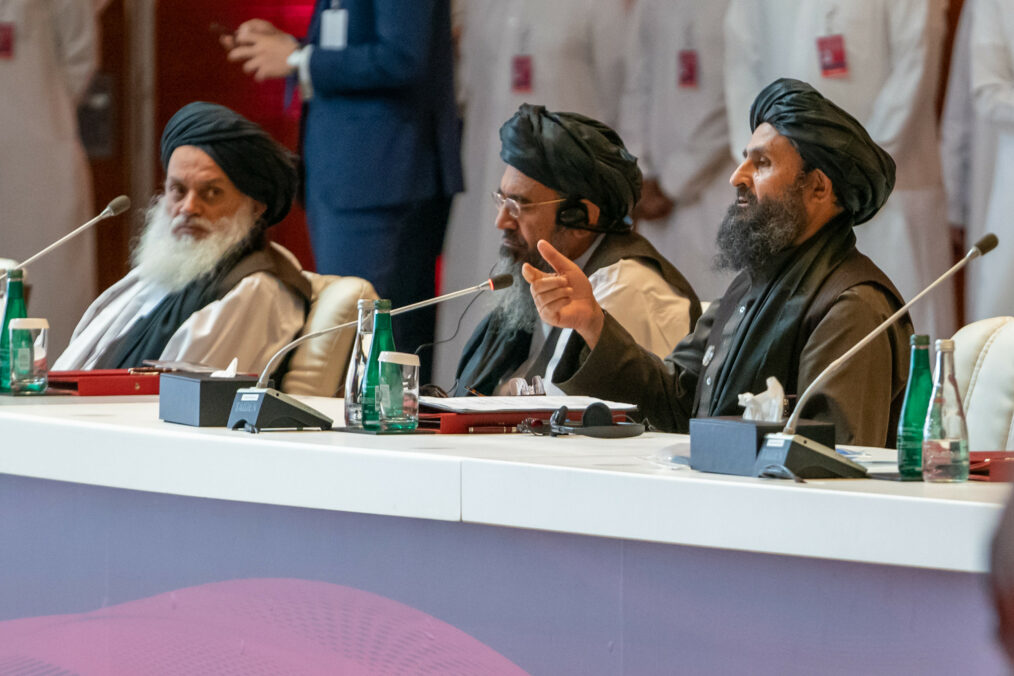
Intra-Afghan Talks Reveal the Long Road Ahead to Peace
“For the first time in 40 years, Afghans will sit together, the government delegation that includes people who are not part of the government as well as four very distinguished women, civil society, political groups will be sitting with an authoritative Taliban delegation to discuss and hopefully come to an agreement on a political roadmap to end the protracted war that Afghanistan has had”. — Zalmay Khalilzad, US Special Representative for Afghanistan reconciliation, in a special briefing.
After delays since March, intra-Afghan peace talks finally began on September 12 in Doha, Qatar. Though the key actors are the Afghan government and the Taliban, several representatives from important states, including the United States, are also taking part. Events in Doha are some of the most anticipated as they serve as a breakthrough in the stagnancy of decades of conflict in Afghanistan.
After over four decades of war, these intra-Afghan talks are a major turning point. However, it seems like the influential states present have limited interests in this negotiation process. The US wants to relieve itself from the 19-years of engagement that have cost them significant resources. Further, Russia is keen to keep track of extremist influences that can spread regionally while China has support from Pakistan in terms of security and networking. These limited interests have made these states content with their roles of being facilitators while they could have exerted more influence to conduct a more effective negotiation process.
The outcome of these talks will determine the future of Afghanistan as they signify hope for possible peace in the country. It is for this reason that there should be a greater focus on facilitating sustainable peace so that Afghan citizens can pursue and secure their basic rights like freedom of expression; equality for women; educational rights; employment and liveable wages.
These are some of the most basic yet important examples. International non-governmental organization Human Rights Watch (HRW) has urged the Afghan government, Taliban representatives, and other stakeholders to facilitate the peace process through their politico-economic resources and ensure such mechanisms so that Afghan citizens can access their rights.
A peace process can only be effective if it is recognized as valid by the affected people in the concerned region. Lack of grassroots validity not only lessens the effectiveness, but it also jeopardizes the endurance of the agreement. Sooner or later, peace will be threatened and conflict will start again in such a context.
The process of validation allows broader participation and also provides space so that the oppressed and the marginalized groups can be heard. Citizens feel that they are a part of and contribute to the peace process — as well as shaping the future of their country — when their experiences are acknowledged. This proportionately increases their faith in government systems and thus healthy relationships between governance and society can be formed. These relations are also necessary for peace processes as they synthesize harmony.
However, little information has been disseminated to the media and Afghan citizens about the peace talks ongoing in Doha. According to a source, there are also instances of informal meetings happening behind closed doors. This is unfavorable for sustainable peace in general. Information on every step of progress at the negotiations should be shared with the media so that it can reach the citizens in Afghanistan so that they can know how the future of their country is shaping up.
Peace is a process, but it is also a state. The quest to achieve it has still a long way to go, but that does not deny the momentum it has achieved. In order to realize the smoothest road ahead, a transparent policy must be adopted that will facilitate the process of creating trust and the removal of hostilities. This can only lead to mutual understanding between actors once in conflict.
The process of negotiations will then not only be a matter of who wins or loses, but of equal victory for all.
–Nelofer Laskar
